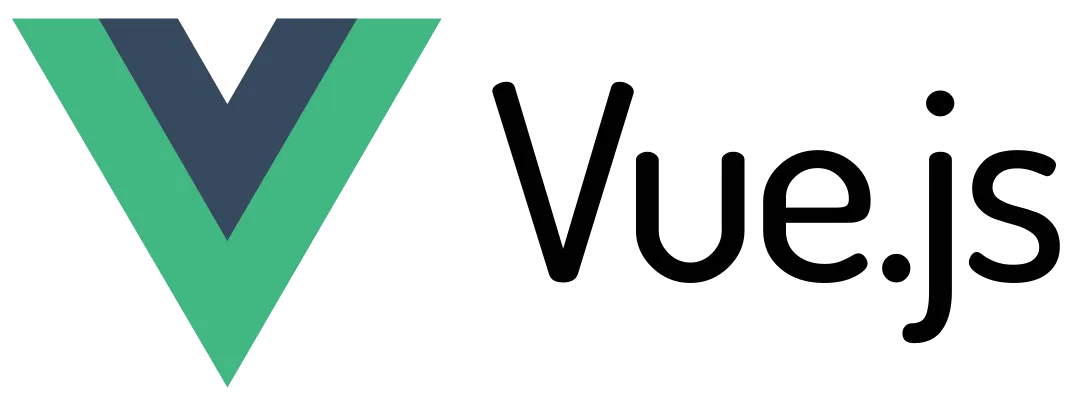昨天聊完了computed,今天来聊聊watch和watchEffect
使用Watch
<template>
<div>
case1:<input type="text" v-model="message">
<hr>
case2:<input type="text" v-model="message2">
</div>
</template>
<script setup lang="ts">
import { ref, reactive, watch } from 'vue'
let message = ref<string>('Hello Vue 3')
let message2 = ref<string>('Hello TypeScript')
watch([message, message2], (newVal, oldVal) => {
console.log('newVal:', newVal, 'oldVal:', oldVal)
})
</script>
<style lang="css" scoped></style>watch需要侦听特定的数据源,并在单独的回调函数中执行副作用。默认情况下,它也是惰性的——即回调仅在侦听源发生变化时被调用。
watch的用法比较简单,说白了就是我们常说的监听器,有的地方叫Listener,有的地方叫Subscriber,其实无所谓。
不过watch的源码还是值得一看的,而且Vue3最近的更新中,watch和watchEffect也是重构过了
使用WatchEffect
<template>
<input type="text" v-model="message">
<input type="text" v-model="message2">
<p>{{ message }} {{ message2 }}</p>
<button @click="stop">Stop Watching</button>
</template>
<script setup lang="ts">
import { ref, watchEffect } from 'vue'
let message = ref<string>("Genshin Impact")
let message2 = ref<string>("Genshin")
const stop = watchEffect((oninvalidate) => {
console.log('message changed to:', message.value)
oninvalidate(() => {
console.log('before message changed')
})
})
const
</script>
<style lang="css" scoped></style>立即执行传入的一个函数,同时响应式追踪其依赖,并在其依赖变更时重新运行该函数。
区别
- 执行时机 :watchEffect是立即执行的,在页面加载时会主动执行一次,来收集依赖;而watch是惰性地执行副作用,它不会立即执行,但可以配置 immediate,使其主动触发
watchEffect(() => { console.log(test.value) }) watch (test.value,(val,oldval) => { console.log(val) },{ immediate: true }) //效果差不多
- 参数不同 :watchEffect只需要传递一个回调函数,不需要传递侦听的数据,它会在页面加载时主动执行一次,来收集依赖;而watch至少要有两个参数(第三个参数是配置项),第一个参数是侦听的数据,第二个参数是回调函数
- 结果不同 :watchEffect获取不到更改前的值;而watch可以同时获取更改前和更改后的值
简单一句话,watch 功能更加强大,而 watchEffect 在某些场景下更加简洁。
源码解析
Vue3的源码也是最近经过重构过的,在 @vue/reactive/watch.ts和 @vue/runtime-core/apiWatch.ts中可以看到。
我们在 apiWatch.ts中可以看到这三个开放的api接口以及实现中,都调用了doWatch:
api部分
// Simple effect.
export function watchEffect(
effect: WatchEffect,
options?: WatchEffectOptions,
): WatchHandle {
return doWatch(effect, null, options)
}
export function watchPostEffect(
effect: WatchEffect,
options?: DebuggerOptions,
): WatchHandle {
return doWatch(
effect,
null,
__DEV__ ? extend({}, options as any, { flush: 'post' }) : { flush: 'post' },
)
}
export function watchSyncEffect(
effect: WatchEffect,
options?: DebuggerOptions,
): WatchHandle {
return doWatch(
effect,
null,
__DEV__ ? extend({}, options as any, { flush: 'sync' }) : { flush: 'sync' },
)
}实现部分
// implementation
export function watch<T = any, Immediate extends Readonly<boolean> = false>(
source: T | WatchSource<T>,
cb: any,
options?: WatchOptions<Immediate>,
): WatchHandle {
if (__DEV__ && !isFunction(cb)) {
warn(
`\`watch(fn, options?)\` signature has been moved to a separate API. ` +
`Use \`watchEffect(fn, options?)\` instead. \`watch\` now only ` +
`supports \`watch(source, cb, options?) signature.`,
)
}
return doWatch(source as any, cb, options)
}顺着找到 watch.ts中的watch函数,可以看到:
export function watch(
source: WatchSource | WatchSource[] | WatchEffect | object,
cb?: WatchCallback | null,
options: WatchOptions = EMPTY_OBJ,
): WatchHandle {
const { immediate, deep, once, scheduler, augmentJob, call } = options
const warnInvalidSource = (s: unknown) => {
;(options.onWarn || warn)(
`Invalid watch source: `,
s,
`A watch source can only be a getter/effect function, a ref, ` +
`a reactive object, or an array of these types.`,
)
}
const reactiveGetter = (source: object) => {
// traverse will happen in wrapped getter below
if (deep) return source
// for `deep: false | 0` or shallow reactive, only traverse root-level properties
if (isShallow(source) || deep === false || deep === 0)
return traverse(source, 1)
// for `deep: undefined` on a reactive object, deeply traverse all properties
return traverse(source)
}
let effect: ReactiveEffect
let getter: () => any
let cleanup: (() => void) | undefined
let boundCleanup: typeof onWatcherCleanup
let forceTrigger = false
let isMultiSource = false
if (isRef(source)) {
getter = () => source.value
forceTrigger = isShallow(source)
} else if (isReactive(source)) {
getter = () => reactiveGetter(source)
forceTrigger = true
} else if (isArray(source)) {
isMultiSource = true
forceTrigger = source.some(s => isReactive(s) || isShallow(s))
getter = () =>
source.map(s => {
if (isRef(s)) {
return s.value
} else if (isReactive(s)) {
return reactiveGetter(s)
} else if (isFunction(s)) {
return call ? call(s, WatchErrorCodes.WATCH_GETTER) : s()
} else {
__DEV__ && warnInvalidSource(s)
}
})
} else if (isFunction(source)) {
if (cb) {
// getter with cb
getter = call
? () => call(source, WatchErrorCodes.WATCH_GETTER)
: (source as () => any)
} else {
// no cb -> simple effect
getter = () => {
if (cleanup) {
pauseTracking()
try {
cleanup()
} finally {
resetTracking()
}
}
const currentEffect = activeWatcher
activeWatcher = effect
try {
return call
? call(source, WatchErrorCodes.WATCH_CALLBACK, [boundCleanup])
: source(boundCleanup)
} finally {
activeWatcher = currentEffect
}
}
}
} else {
getter = NOOP
__DEV__ && warnInvalidSource(source)
}
if (cb && deep) {
const baseGetter = getter
const depth = deep === true ? Infinity : deep
getter = () => traverse(baseGetter(), depth)
}
const scope = getCurrentScope()
const watchHandle: WatchHandle = () => {
effect.stop()
if (scope) {
remove(scope.effects, effect)
}
}
if (once && cb) {
const _cb = cb
cb = (...args) => {
_cb(...args)
watchHandle()
}
}
let oldValue: any = isMultiSource
? new Array((source as []).length).fill(INITIAL_WATCHER_VALUE)
: INITIAL_WATCHER_VALUE
const job = (immediateFirstRun?: boolean) => {
if (
!(effect.flags & EffectFlags.ACTIVE) ||
(!effect.dirty && !immediateFirstRun)
) {
return
}
if (cb) {
// watch(source, cb)
const newValue = effect.run()
if (
deep ||
forceTrigger ||
(isMultiSource
? (newValue as any[]).some((v, i) => hasChanged(v, oldValue[i]))
: hasChanged(newValue, oldValue))
) {
// cleanup before running cb again
if (cleanup) {
cleanup()
}
const currentWatcher = activeWatcher
activeWatcher = effect
try {
const args = [
newValue,
// pass undefined as the old value when it's changed for the first time
oldValue === INITIAL_WATCHER_VALUE
? undefined
: isMultiSource && oldValue[0] === INITIAL_WATCHER_VALUE
? []
: oldValue,
boundCleanup,
]
call
? call(cb!, WatchErrorCodes.WATCH_CALLBACK, args)
: // @ts-expect-error
cb!(...args)
oldValue = newValue
} finally {
activeWatcher = currentWatcher
}
}
} else {
// watchEffect
effect.run()
}
}
if (augmentJob) {
augmentJob(job)
}
effect = new ReactiveEffect(getter)
effect.scheduler = scheduler
? () => scheduler(job, false)
: (job as EffectScheduler)
boundCleanup = fn => onWatcherCleanup(fn, false, effect)
cleanup = effect.onStop = () => {
const cleanups = cleanupMap.get(effect)
if (cleanups) {
if (call) {
call(cleanups, WatchErrorCodes.WATCH_CLEANUP)
} else {
for (const cleanup of cleanups) cleanup()
}
cleanupMap.delete(effect)
}
}
if (__DEV__) {
effect.onTrack = options.onTrack
effect.onTrigger = options.onTrigger
}
// initial run
if (cb) {
if (immediate) {
job(true)
} else {
oldValue = effect.run()
}
} else if (scheduler) {
scheduler(job.bind(null, true), true)
} else {
effect.run()
}
watchHandle.pause = effect.pause.bind(effect)
watchHandle.resume = effect.resume.bind(effect)
watchHandle.stop = watchHandle
return watchHandle
}所有的实现和api都可以接收函数,ref,数组,基本的实现逻辑就是挂载一个副作用上去进行调用,同时immediate属性会取消懒加载,在初次进入的时候就可以调用。
所以watchEffect说白了可以当作一种简写。。。
再观察所有的api,调用doWatch之后,返回值类型都是WatchHandler,这个类型是这样的:
export type WatchStopHandle = () => void
export interface WatchHandle extends WatchStopHandle {
pause: () => void
resume: () => void
stop: () => void
}没错,这就是vue3取消监听的方法。当我们手动调用这个watch监听器的时候,我们就是在调用返回的这个WatchHandle中的函数,所以在调用之后,监听就会停止。
baseWatch中是这样实现的:
const watchHandle: WatchHandle = () => {
effect.stop()
if (scope) {
remove(scope.effects, effect)
}
}当副作用停止,监听自然也停止了。以后可以学学这个”句柄Handler”的使用方法。

